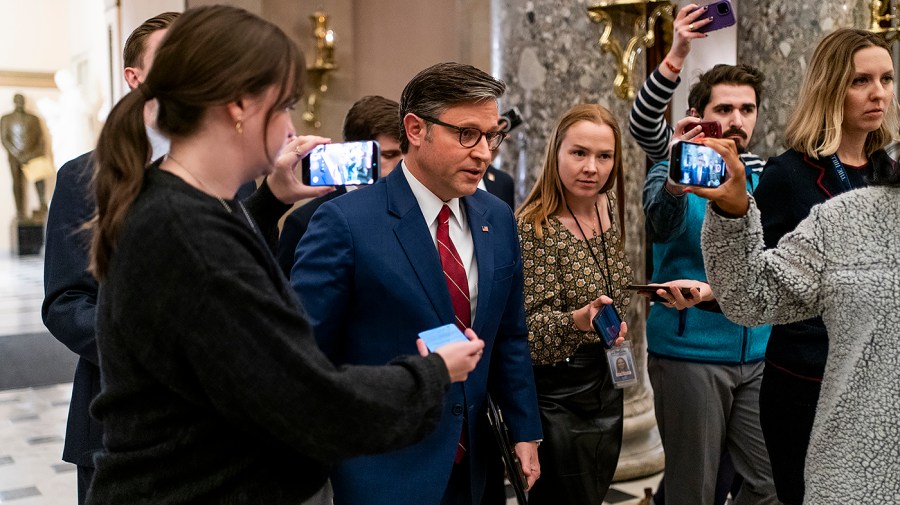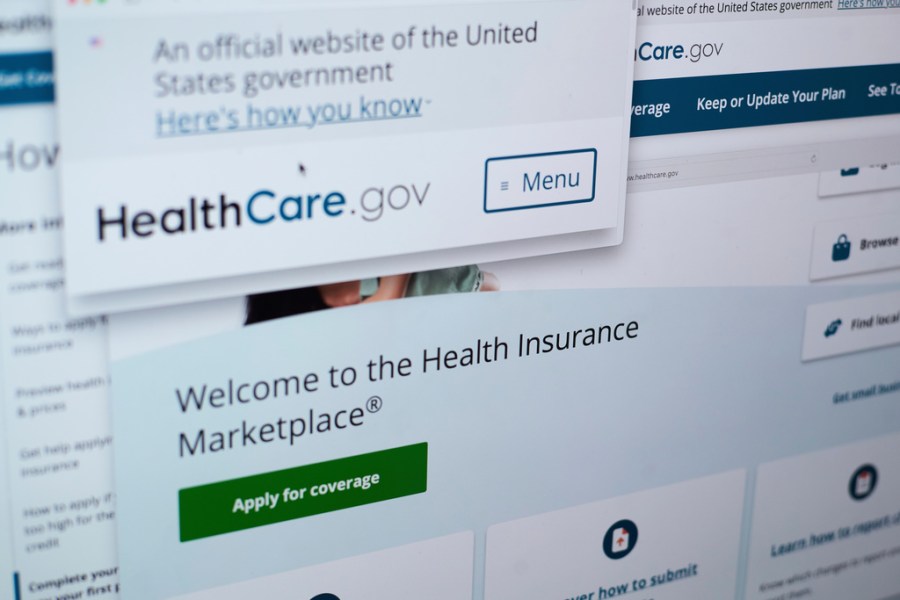
House Republicans are calling on the Justice Department to launch an investigation into the Biden administration’s use of AutoPen, hoping that will lead to various actions taken by former President Biden.
The 100-page report released Tuesday by the House Oversight Committee follows the panel’s investigation into questions about Biden’s mental acuity.
While House Oversight Chairman James Comer (R-Ky.) has also asked the D.C. Health Department’s Board of Medicine to investigate Biden’s doctor, the most important requests related to the report are with Attorney General Pam Bondi, including whether any of Biden’s pardons should be overturned.
Presidents in all administrations have used the autopen to sign actions authorized by the president. But House Republicans argued in their report that Biden was “cognitively impaired” and that staffers “took a laissez-faire approach that treated the use of the AutoPen as a mundane exercise” that did not document a chain of command on decisions.
However, the report does not point to any specific incidents in which investigators could demonstrate that AutoPen was used without Biden’s authorization.
Comer wrote, “Except for evidence of executive actions taken during the Biden presidency that demonstrate that President Biden actually took a particular executive action, the Committee considers those actions taken through the use of the Autopen void.”
“The legality of executive actions allegedly approved and signed (largely by autopen) by President Biden [sic] The review should be conducted to determine whether legal action is necessary to remedy the consequences of any illegitimate pardons granted or implemented in the Biden autopen presidency, the report said, asking Bondy to review “all executive actions attributed to President Joe Biden.”
Any investigation into Bondi could potentially lay the groundwork for further legal battles if the current Trump administration attempts to roll back any action or pardon signed by Biden.
Biden, who has generally kept a low public profile since leaving office, has at several points rejected claims from the White House and congressional Republicans that he was not behind major decisions during his presidency.
“Let me be clear: I made decisions during my presidency. I made decisions about pardons, executive orders, legislation, and proclamations. Any suggestion I didn’t make them is ridiculous and false,” Biden said in a statement.June’s statementAfter President Trump directed the Justice Departmentinvestigative actionBiden cited claims about his cognitive state while in office.
1st of JulyInterview with The New York TimesBiden specifically defended the use of the AutoPen to sign clemency decisions toward the end of his term, including pre-emptive pardons for his family members and high-profile Trump critics.
“I made every single one of them. And — including the categories, when we set it up to start. And so — but I understand why Trump would think that, because obviously, I think, he doesn’t focus much,” Biden told the news outlet.
Biden said he used the AutoPen to sign clemency decisions, “because there were so many of them.”
“You know, AutoPen is legal,” Biden told The New York Times. “As you know, other presidents, including Trump, have used it. But the point is, you know, we’re talking about a lot of people.”
Several former senior Biden White House officials have appeared before the committee in recent months. Some of them — including Biden’s former physician, Dr. Kevin O’Connor implemented the fifth amendment And refused to answer questions.
Others rejected Republican claims that senior aides were making the decisions, not Biden.
Biden signed several pardons and pardons during his time in office, a group that included his son as well as members of Congress who served on the January 6 committee, but most of the last-minute pardons were granted to people the White House described as non-violent drug offenders.
The report argues that pardons and pardons must all be signed directly by the president, but in some cases Biden gave verbal authorization for the use of the AutoPen.
“The fact that the Biden White House did not have – or did not follow – a set process governing the use of the AutoPen was another weak link in the chain of presidential decision-making. It represents another vulnerability that could be exploited to carry out lesser presidential duties without their full understanding or consent,” he wrote, describing a “presidential pardon game of telephone” in which aides would broadcast the decision.
The report said the pardons for Biden family members were the result of an in-person meeting “for which there is no contemporaneous documentation.”
Beyond the AutoPen, the report spends considerable time reviewing Biden’s fitness for office and staff actions described by Republicans as declining cognitive function.
“Joe Biden had good days and bad days in presenting his cognitive abilities. However, what became clear to the committee is that President Biden’s inner circle worked tirelessly and creatively to hide the presidency’s bad days,” the report said.
Former White House chief of staff Jeff Zients told the committee that he had adjusted Biden’s schedule to “reduce the number of steps and things of that nature” and said that while the president’s ability to remember names and dates has always been a struggle, “I think it’s [has] “Probably became more difficult over time.”
Mike Donilon, a senior adviser to Biden, told committee investigators, “The best approach for us would be to reduce his schedule load” and also expressed concern about the rigorous travel.
Still, for the panel, taking action to limit Biden’s workload, preparing notecards and arranging for teleprompters for short presentations and speeches, while pushing back on questions about his health is tantamount to concealing his decline.
The report argues lower-level staffers, including those who defended Biden’s cognitive abilities after former special counsel Robert Hur raised questions about his mental state, had little interaction with the president.
“When it comes to highly visible issues, aides rely on a group of senior staffers for updates and guidance who have no direct knowledge or insight into Biden,” it said.
“The Politburo, or inner circle of individuals controlling President Biden, maintained extreme control over his appearances, schedules, and clothing, while sheltering the President from other members of the White House staff,” they wrote, later adding that “the most visible, enthusiastic speaker for Joe Biden has rarely met or seen his boss during President Biden’s four years in office.”
The report called that group of close aides “delusional,” as many said they had no concerns about Biden’s health or mental acuity.












